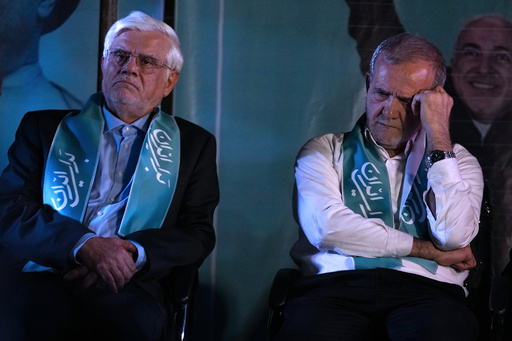In Tehran, Iran’s supreme leader formally endorsed Masoud Pezeshkian as president, permitting the reformist politician and heart surgeon to lead a nation dealing with economic sanctions due to its nuclear program.
During the endorsement ceremony, Ayatollah Ali Khamenei encouraged Pezeshkian to prioritize relationships with neighboring countries, as well as African and Asian nations, and those that have supported Iran in its foreign policies.
Khamenei criticized European nations for imposing sanctions and an oil embargo, and for highlighting alleged human rights violations.
He also condemned Israel for its actions in Gaza, accusing the country of war crimes and cruelty in the deaths of innocent civilians.
At the same event, Pezeshkian honored Gen. Qassem Soleimani, a key figure in Iran’s regional military operations who was killed in a U.S. drone strike in 2020.
In his first official act, Pezeshkian appointed Mohammad Reza Aref, a moderate reformist, as his first vice-president. Aref, who previously held the position between 2001-2005, is known for his engineering doctorate from Stanford University.
Pezeshkian succeeds Ebrahim Raisi, who died in a helicopter crash, triggering an early election. He is set to be sworn in on Tuesday and will have two weeks to form his cabinet for parliamentary approval.
During his election campaign, Pezeshkian vowed to maintain Iran’s Shiite theocracy, respecting Khamenei as the final authority in state matters. He faces the challenge of balancing hard-liners’ influence while attempting to bridge the gap between hard-liners and reformists.
Pezeshkian’s administration has pressing issues to address, including the conflict between Israel and Hamas in Gaza and international concerns about Iran’s uranium enrichment activities, potentially leading to nuclear weapons production.
Iran engaged in direct hostilities with Israel over the Gaza conflict and has supported militia groups like Hezbollah and Houthi rebels in Lebanon and Yemen respectively.
Despite indirect talks with the U.S. to resolve the nuclear program issues, economic sanctions against Iran remain in place, presenting a significant challenge for Pezeshkian’s government.


